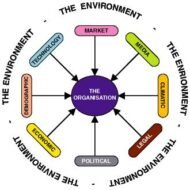Posted by Managementguru in Accounting, Financial Accounting, Financial Management, Management Accounting, Project Management, Training & Development
on Jan 21st, 2015 | 0 comments

What Does a Career in Accounting Demands for? Are you vying for a career in accounting field? Everybody envy accountants for there is a misconception that they are Demi-Gods. Though a good accounts manager can act like one who can save you from a dire situation by manipulating the accounts skilfully, the demands and challenges in this field are too high to be savored. Purchase Your Copy of “Careers with a Degree in Accountancy and Finance” at Gumroad So what does it take to become a reputed accounts man in your circle and also enjoy what you do! Self analysis is the best way to understand what you really want to be. There are certain traits characteristic to people belonging to this community. See if you are gifted with those attributes; if not, you can always train yourself to gain expertise. 1. Are you good at numbers– Mathematics, Yuck! If this is your reaction please quit reading this article as numbers play an integral role in accountancy. Figures, Figures and more Figures determine the profit and loss status of a company. If you are passionate about playing with numbers it goes without saying you are already a half accountant. The thrill of taking control and handling numbers make or break a company. Jackie Mansion jocularly puts it – “Did you ever hear of a kid playing accountant – even if they wanted to be one?” 2. Are you a good listener and can you read between the lines? A good auditor will allow the client to talk and listen to what he says. Then he tries to extract the exact kind of information he needs to make the ends meet. Empathy is an innate quality and if you are not going to be a good listener then please revise your consideration of becoming an accountant. Sometimes the client may not know what you wish to seek; it is your responsibility to frame simple questions in a language that he understands and pull out answers. 3. Can you avoid being temperamental? 90% of the time your clients are going to say “No” to whatever you suggest. Alas, it is not their fault; the corporate Bosses and CEO’s always aim big and most probably will not be aware of the consequences of their impulsive actions. They always think about clinching a deal and conveniently overlook the effects of their financial and corporate decisions on the account and subsequently on the accountant. For example cash has to be handled very carefully and every penny has to be accounted for properly. A bank cashier will know the importance of cash handling as it is very important for them to balance the inflow and outflow at the end of the day. For corporate firms, it becomes mandatory to reduce the cash dealings and account every transaction in the form of a check or electronic transfers like RTGS or NEFT or EFT. The point is, you should have the nerve to talk to a company’s head if he is planning for a bad move and suggest what could be done for the good of the company (Income tax and Sales purposes). 4. Are you wise when it comes to choosing clients? Whether you are a part time practitioner, Full time accountant, Accounts manager or Free lancer, do your homework before accepting the offer. Ultimately you need to see your payments coming through and nobody works here for a song. Big practitioners take a big cut half yearly or annually but if you are a part time accountant, it is always better to go for monthly payments or get paid after the completion of individual project s....

Posted by Managementguru in Business Management, Principles of Management
on Feb 26th, 2014 | 0 comments

Factors of External Environment of Business What do you mean by Business Environment: The sum total of all things external to firms and industries that affect the functioning of the organization is called Business Environment. Elements of Business Environment 1. ECONOMIC 2. SOCIAL 3. CULTURAL 4. POLITICAL 5. LEGAL 6. TECHNOLOGICAL 7. DEMOGRAPHIC 8. GEOGRAPHICAL 9. ECOLOGICAL 1. Economic Environment This refers to all economic factors that influence and affects the very survival of an organization. Can be classified into · Economic factors affecting demand · Competitive forces Economic factors affecting demand The existence of an organization depends on the demand for its products or services. The customers’ ability to buy and willingness to pay determine the demand factor. The buying power is determined again by · Employment · Income taxes · Saving and · Prices The money acquired by an individual through employment is utilized for paying taxes which is the first priority and then comes saving or spending. In developing countries like India, much importance is attached to the habit of saving in the form of insurance policies or mutual fund deposits or investment on immovable assets. This makes the economy strong and stable even during times of recession, whereas we witness the economy of some developed countries entirely shaken when there is an economic depression. Sub Prime Lending Sub prime lending may prove to be disastrous for a growing or grown nation when the money is lent by the banks to third parties without proper securities or collaterals. While the initiative is intended to increase the growth rate or GDP, the end result may not live up to the expectations when the money is parted to individuals or firms with poor financial credentials. Disposable Income Disposable income also decreases when the tax rate increases and his/her ability to buy is reduced. Equally important is the willingness to by because the fact that an individual has the ability does not mean that he or she will buy. Willingness is affected by the preferences for products and the expectation about future factors like the price fluctuation, increase in one’s own income, general economic trend and so on. Competitive forces Firms have to first survive in order to succeed in the market. To accomplish this they exert competitive force on each other through one or the other following methods. · Price cutting · Promotion-advertising, personal selling · Design, feature and packing · Number and type of customer services offered give a cutting edge to firms competing in the race. 2. Social and Cultural Environment The social environment depends upon the · The class structure · Mobility · Nature of the social organization and · Development of social institutions People always have the unending desire to move from one occupational category to another and this is the main reason for high job turn over in IT industries for various reasons like pay, promotions, job satisfaction etc., This is the same reason which can be attributed to the failure of many good projects that go underway due to lack of continuation of the same initiative with which it was started. The above said process is more prevalent in urban societies than rural where scope of mobility is much the less among farmers, artisans and those engaged in traditional crafts and cottage industries. 3. Political Environment A smart manager has to be on tenter hooks to gauge the trends in political scenario that directly or indirectly affect the functioning of the firm. The political weather is highly unpredictable and may be classified into · Long-term changes · Quick changes · Cyclical changes · Regional changes Now-a-days we see that the economic depression in...

Posted by Managementguru in Business Management, Financial Management, Principles of Management
on Feb 21st, 2014 | 0 comments

Every business organisation’s aim is to make profit and more profit. Does it end there? What should be the real motive behind running an organization? Profit maximization alone does not help the organization to firmly plant its feet in the business environment, as the success of an organization in the long run is decided by many critical factors like, market share, value of the company shares, market stand, image etc. So, shall we say, let wealth maximization be the goal of any organization, which focuses on increasing the “earnings per share” of the share holders. What is Profit Maximization? Profit maximization does not take into consideration, the interest of share holders or stake holders, who ought to be the ultimate beneficiaries. Concentrating on short term profits confines a firm and limits its scope and growth whereas; value creation is something that the management should aim for, as it helps to increase the “net worth” of a company. Mere price versus output calculations make firms to operate in a profitable manner, but it should never be the only objective of a firm, as it has the moral and social responsibility to patronize its shareholders by increasing the net worth of the company. Underlying Logic While maximizing profit, a firm either produces maximum output for a given amount of input, or uses minimum input for producing a given output. Thus the underlying logic for profit maximization is efficiency. Under perfect competitive market conditions, profit serves as a perfect measure for the performance of a firm. If profit is the motive of a firm, it fails to consider the time value of money which is an important criterion that decides the success of a firm, and also it values benefits received today and after a period as the same. Moreover the uncertainty factor is there to be considered too. Firms always prefer to have smaller but surer profits rather than larger benefits but less certain. Impact of Taxes When we talk about profits, the next indispensable factor will be the taxes that demand a portion of your profit. Maximizing profits after the payment of taxes facilitates the firm to increase the net profit ratio to serve the best interests of the owners. But, this also fails to maximize the economic welfare of the owners, as it does not take into account, the timing and uncertainty of the benefits. Wealth maximization is the ideal alternative that is consistent with the survival goal and also with the personal objectives of managers such as recognition, power, status and personal wealth. The Right Balance between Risk and Return Mangers while deciding on investment options, seek to achieve a right balance between risk and return. If the firm borrows heavily to finance its operations, care should be taken to ensure that, the rate of return on investment should be sufficient enough to support the payment of interests on borrowings and also to repay the principal. If the firm is not able to “service the debt” there is a danger of the firm becoming bankrupt or insolvent. The firm’s investment and financing decisions are unavoidable and continuous. In order to make rational decisions, the firm must have a goal, which is nothing but the “shareholder’s wealth maximization” which is theoretically logical and operationally...

Posted by Managementguru in Business Management, Economics, International Business, Principles of Management
on Feb 16th, 2014 | 0 comments

The Economic Environment of Business Macro Environment The management of a firm is influenced and affected by many factors that exist in the external environment, also called as macro environment. These are beyond the scope of business control and affect the functioning of a business enterprise. Factors of External Environment that Affect Business These factors may present themselves in the form of opportunities or threats and it is the responsibility of a manager to identify the changes in the external environment, be it, social, economic, political, legal, technological, demographic or ecological and devise action plans accordingly, to suit the changing demands and needs of the macro environment. Buying Power of People The most important and prime factor that affects a firm’s operations and its basic survival is the economic factor. Economy of a country is prosperous only when it is self sufficient and withstands the pressure of inflation or recession. Businesses can flourish only if there is a regular demand for the products manufactured. Economic Factors that Affect Demand The buying power of people and their willingness to pay are also important economic factors that affect demand. In developing countries, people concentrate on “saving” rather than spending, where the economy is showing steady growth. For instance in India, people invest their money in gold and land,both being considered as solid appreciating disposable income,assets. Why do we turn to nonprofits, NGOs and governments to solve society’s biggest problems? Michael Porter admits he’s biased, as a business school professor, but he wants you to hear his case for letting business try to solve massive problems like climate change and access to water. Why? Because when business solves a problem, it makes a profit — which lets that solution grow. Watch the Video… Disposable Income The ability of people to buy, largely depends on their employment, income tax and price of the product. The disposable income of people in developing countries is very meager and it further decreases if the rate of tax increases. Ability to Buy This also affects his or her ability to buy. If his concentration is on “saving”, again his ability to purchase is restricted. Even if the individual has the purchasing power, there is no assurance that he or she will buy, it all depends on their willingness to buy. The purchasing power parity of developing countries is very low when compared to developed countries. Role of Technology In recent times, technology also has played an enormous role in bringing an array of new products into the market, and has improved man’s preference for better products. For a business firm, it is very difficult to predict people’s preference as well as changes in their preferences. It needs a great deal of market research and regular updations. If the prices are in decreasing trend, people will not buy the product immediately; they will wait for some more time to derive maximum benefit or value out of their purchase. So, people’s perception about the market economy, social influences and changing preferences definitely affect the willingness to buy. Competitive Market Managing the competition proves to be a tougher task for each and every individual business firm. In today’s modern high flying business environment, people always expect value added services for the products purchased. Business organisations are in a position to compete for customer’s interest as well as income. Firms think of price reductions, aggressive promotional efforts, attractive offers, differentiated product offerings and customer service as competitive tools to have a sustainable and distinctive advantage over others. Offering new product designs, attractive packing, extended credit facilities, free door delivery and fast and competent repair services also differentiate firms from their competitors. Inflation and...








